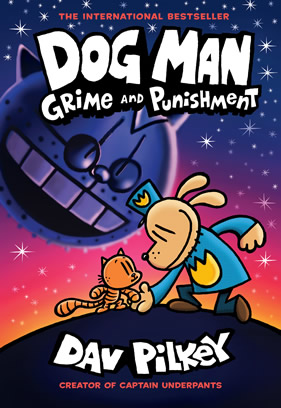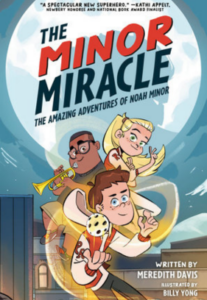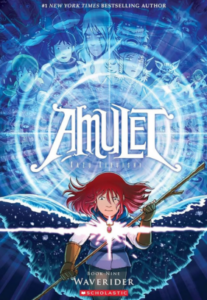George and Harold—two comic book-drawing pals of Captain Underpants fame—have a new set of comics to share about a favorite character of theirs: Dog Man!
This hero is the result of an explosion that nearly killed a hard-working policeman and his loyal police dog. But instead of letting both perish, the fast-thinking medical professionals stitched the uninjured head of the loyal pup to the hard-working body of the good-guy cop, and Dog Man was born. And he has continued fighting crime and keeping the city safe from evildoers ever since.
Dog Man does have one little problem, however. He tends to act a little too much like a dog sometimes. And after yet another incident where his doggy actions embarrassed the mayor, he is unequivocally fired from the police force. Thankfully for Dog Man, though, his good buddy Li’l Petey and creative robot 80-HD come up with a perfect plan to get him rehired: disguise him as a cat.
Meanwhile, Li’l Petey’s dad, Petey, (who used to be the world’s most evil cat) is still trying to live a life of doing good. But that’s not easy, because he has all this anger and hate down deep inside. And it’s all aimed at his father, a guy who abandoned Petey and his mother in the past when she was sick and dying. Petey is having a tough time dealing with all this past hurt, but he’s trying for the sake of his beloved Li’l Petey.
And meanwhile again, Petey’s dad (Li’l Petey’s grandpa) is out in the world doing bad stuff. He brought a giant lunch bag to life to terrorize the city. And he used a new invention to turn himself into a powerful supervillain named CRUD.
Can Dog Man a.k.a. Cat Man figure out how to scratch out this CRUD-dy crime wave?
Can Petey keep doing good?
Can Li’l Petey help his father forgive and maybe heal a little, too?
It’s all spelled out here.











